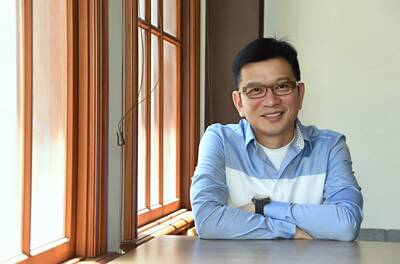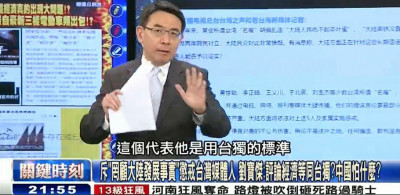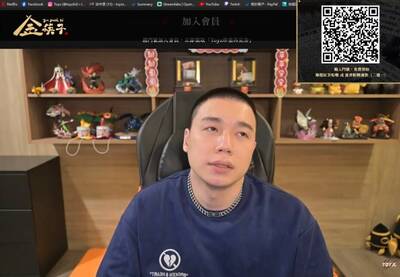《TAIPEI TIMES》 ‘Sunflower entrepreneur’ and Awoo founder talks business without China

Awoo International founder Jose Lin speaks at an event in Taipei on Oct. 3. Photo courtesy of Jose Lin
By Liao Chien-ying / Staff reporter
After rejecting Chinese investment from Alibaba Group Holding Ltd founder Jack Ma (馬雲) and China’s largest search engine, Baidu Inc, Jose Lin (林思吾), founder of Taiwanese software company Awoo International, earlier this month collected about US$1 million from Silicon Valley entrepreneurs as part of his bid to make the nation’s software businesses known internationally, he said during an interview earlier this month with the Chinese-language Liberty Times (sister newspaper of the Taipei Times).
Awoo, which was founded in 2002, develops search engine optimization software to help companies boost their online visibility.
Lin, 36, said that since the Sunflower movement, he has been thinking about how to maintain distance from Chinese influence.
The Sunflower movement refers to student-led protests that began on March 18, 2014, in which students occupied the legislative chamber for nearly 23 days to protest a trade in services agreement with China and how it was handled by the then-Chinese Nationalist Party (KMT) government.
After the movement, Lin said that a question has been coming back to him: “What should young Taiwanese and entrepreneurs do if the nation is to be without China?”
If Taiwan is to be an independent democratic nation, it has to deal with three key issues: industrial structure, land planning and the China factor, he said.
In terms of industrial structure, the software sector is essential for the nation’s development, he said, adding that he decided to start a software business, because of the high gross margin of such products.
While most software companies are based in the US and China, Lin said he hopes that his company can reduce its reliance on China by becoming more globalized.
China is by no means the best partner Taiwan can have in its progress toward independence and normalization, whereas Japan is an important market, he said.
In 2013, Baidu sought collaboration with Lin, but he refused the invitation, because he thought their collaboration would deal a heavy blow to Taiwanese businesses, Lin said.
Baidu’s entries would overwhelm search engines in Taiwan, while small and medium-sized local businesses would be less likely to be seen by general users, he said.
Lin also said “No” to Ma in 2014, when he wanted to invest NT$100 million (US$3.31 million) in his company for a 15 to 20 percent share.
Lin said that Awoo has collected a rookie fund of about US$1 million from PChome chairman Jan Hung-tze (詹宏志), Netscape Communication Corp cofounder James Sha (沙正治), Ellie Mae cofounder Limin Hu (胡立民) and Integrated Device Technology founder Chiu Chun-pang (邱俊邦), with their aggregate share reaching about 10 percent.
As for next steps, Lin said he hopes Awoo can enter the Japanese market and have an initial public offering there.
Japan has a large market base and its capital markets give software businesses friendly evaluations, Lin said, adding that he hopes Taiwanese software companies can become popular and more internalized in Japan.
新聞來源:TAIPEI TIMES














